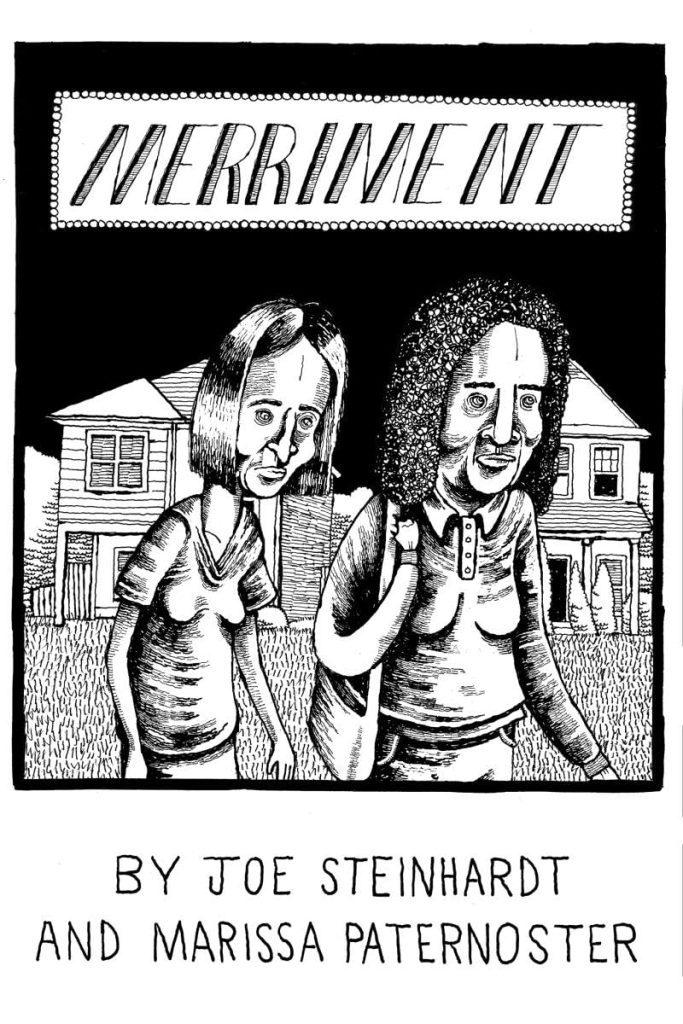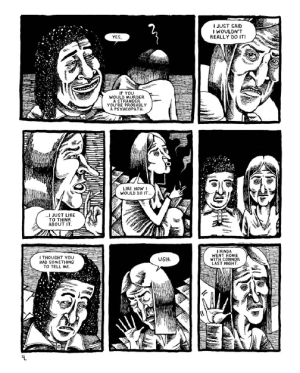Review by Frank Plowright
When Mack’s partner finds out she’s been cheating on him it means moving out and back to New Jersey, where she knows her friends who never moved will see her as a failure. On top of that she’s unable to get along with her mother in whose house she’s staying.
Merriment is an observational drama clocking in at almost 250 pages, but it takes one hell of a time to get going. An opening fourteen pages lingers too long on Mack’s unsatisfactory life during a prolonged conversation that really should have been broken down more efficiently, or better still cut considerably as there’s no need for the decompression of pauses to establish what’s needed. It’s a problem that recurs due to Joe Steinhardt wanting to be true to real life stilted speech in focussing on a group of people with very little left to say to each other, but who hang out together as the alternative is being alone. It’s emphasised by frequent conversational references to the way people were, although almost always people who aren’t currently sitting around in a New Jersey bar.
Part of the reason Merriment takes so long to connect is Marissa Paternoster not varying the art enough. It’s developing throughout, with the fundamental style drawing on the punk underground of the 1980s with haunted people in crosshatched backgrounds, but always head and shoulders shots seen from face on, usually of individuals, one of whom may sometimes look to the side. A graphic novel that’s so dependent on conversation really needs viewpoints to change, with people seen from above, from a distance, from the side and as a group.
It’s halfway through when the central issue emerges. Of all her friends Denise is the only one Mack confides in, and what eventually emerges is Mack having mental issues. There’s paranoia and a sense of reality not being real, and it may be to do with having been abused by her father when younger, although she denies it when her mother raises the matter. Eventually Mack convinces herself that she murdered a missing woman mentioned on news bulletins.
There’s the germ of a decent graphic novel in Merriment. The sarcastic title indicates the capacity for funny observations, which occur throughout, and Mack gradually falling to pieces is as sad as intended. However, it takes too long to reach what matters, and the art being just a succession of faces fails to provide variety or emotional depth.





